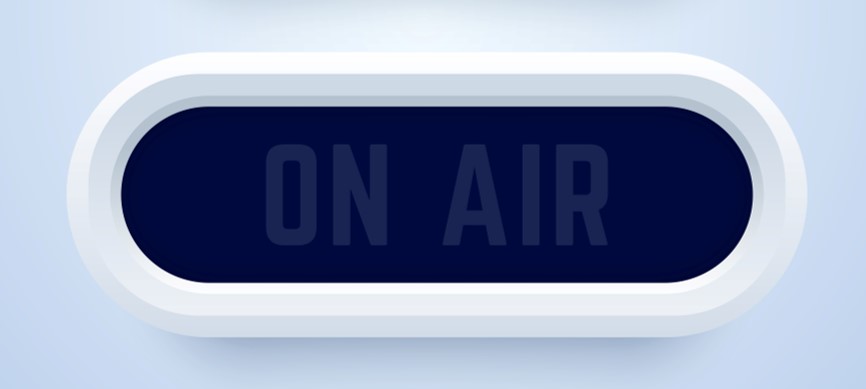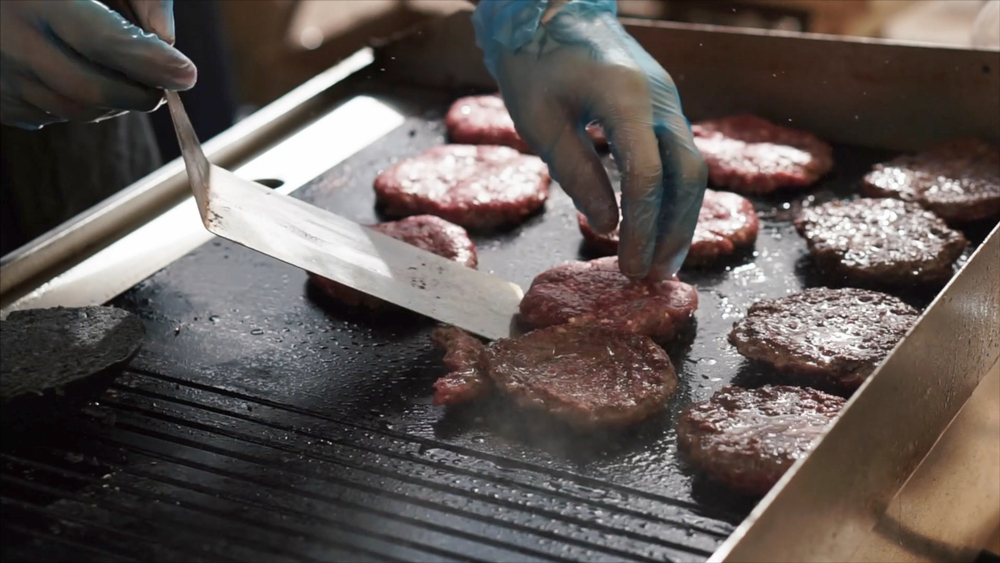
These are strange times for the U.S. – and the world – economy. Inflation has hit all new highs, while jobs are plentiful. Unfortunately, many employers are struggling to find workers to fill all those positions. Economists are trying to determine just how many Americans are looking for jobs, as well as those with no apparent desire to work, at least for the time being.
In this environment, many businesses are having trouble meeting staffing requirements. You can see it up close and personal where you shop and where you eat. In many stores, it’s difficult to find workers who can help out and answer questions. In restaurants – sit-down and fast food – there often aren’t enough workers to keep them open six days a week.
I’ve seen the problem at my neighborhood Starbucks where over the past several months, store hours have fluctuated. There are also times when long lines overwhelm the baristas, often understaffed to handle the routine load of caffeine enthusiasts and addicts. On a couple of occasions over weekends, I’ve been informed the store must close early due to no-shows. The staff has handed out gift cards to compensate customers for their trouble, but the fact is, the store has had to shut down unexpectedly more than once. That lack of regularity or the inability to get served promptly is ultimately erosive to an eatery or a coffee shop – even Starbucks.
So when my Twitter feed hiccupped the other day, spurred on by a tweet from a veteran morning guy in Canada, Gene Valaitis (pictured below), I thought it would be worth sharing here. Gene is a personality on the Canadian radio airwaves, based in Vancouver. Here’s the tweet that got Gene riled up:
I did a double-take when I saw this tweet, not something I would ever expect to see from a radio station.
CKTB is licensed to St. Catherines, Ontario – not far from Buffalo and Toronto. Their slogan is “Niagara’s NewsTalk Leader.” My first assumption was that perhaps CKTB is a mom and pop station. These days, we know financial troubles can easily become extenuating.

But it turns out, the station is owned by Bell, one of the “bigs” in Canada, even more of a head scratcher. Gene told me he thought it was a bad April Fools Day prank. In the middle of the summer.
Now I’ve done this long enough to know that it’s easy to take cheap shots at companies, stations, managers, and personalities – from the outside. There is almost always a story that you just cannot imagine if you’re not a part of the operation.
So I don’t want to jump the gun here, and make judgements about this station, the day in question, or this tweet.
But those voices in my head – my teachers, mentors, and industry influencers keep shouting:
This is RADIO!
You have to find a way. Vacations, illnesses, weather, and other calamities are all part of the challenges facing every operator. On the very worst days, major problems have to be solved, whether it’s a substitute host, the program director themselves, or even a “Best of” show. Things happen, and when you’re a 24/7/365 media outlet, they happen with a degree of regularity. Having contingency plans for those moments is just Prep 101 stuff. The truly successful PDs are often the best planners, pretty darn resourceful, and expert problem-solvers.
Not knowing what’s going on behind the scenes at CKTB makes it difficult – and unfair – to cast aspersions on the real truth of the matter. The mention of illness – and we all know way too much about that – as well as vacation schedules suggests a lot of moving parts.
But radio stations in St. Cats or St. Louis have to find a way. According to Gene, “the solution” was to simulcast Bell’s Toronto station, CFRB, for the morning. Problem solved.
Or is it?
In thinking about this post, I began to wonder what radio stations in the U.S. do when they run into financial problems or other disasters. Apparently, some go dark. Earlier this month, Inside Radio reported the tally of commercial FM stations in Q2 this year dropped, continuing a pattern that has taken flight since the start of the pandemic. (By the way, noncommercial stations are growing in number.)
 The FCC publishes a list of what they call “silent FM broadcast stations” – operations that go dark for more than two months. These are mostly low power FMs and FM translators, but the trend shouldn’t be lost on any of us.
The FCC publishes a list of what they call “silent FM broadcast stations” – operations that go dark for more than two months. These are mostly low power FMs and FM translators, but the trend shouldn’t be lost on any of us.
The easy answer is COVID and the economic ripples in its powerful wake. One of the mass effects of the pandemic has been to warp our sense of work – and our personal lives. In other words, what is commonly known as the “work-life balance.”
While WFH – or work from home – has clearly become a theme that’s rippled through radio sales departments, it’s this equilibrium between our jobs and home lives that’s in question.
And the more I stare at it, the schism is often generational. That is, industry relics (like me) have a tendency to be flippant.
“Work-life balance?! Nonsense! In my day, 60 hour weeks weren’t uncommon. You do what it takes to keep the station on the air, no matter what.”
Yup, that’s an old school Boomer talking. A website called daily dot tracks what they refer to as “Internet culture and life online.” Oftentimes, it’s the play-by-play between Gen Z’s and their older counterparts in the workplace.
Day in and day out, there are stories about rifts, miscommunications, and culture skirmishes that appear to be generational – exacting a cost on the economy and our mental heallth. Many of these dustups appear to be minor, but like radio stations that no longer have the infrastructure to operate, it all adds up.
Last week, it was a story about a McDonald’s manager – Brandon – who showed up for the morning shift at 4 a.m., only to discover no other employees were on site. They didn’t quit – they just showed up three hours late and never bothered to call in.
As you might imagine, Brandon was incredulous:
“I’m not sure if you noticed but right now it’s 6:15 in the morning,” Brandon begins, “the McDonald’s I work at, employees are supposed to get here at 4 to open at 5. Well, I don’t know if you just noticed, no employees.”
When this incident blew up on TikTok, opinions differed, blaming Brandon’s management style on the one hand, while others empathized with his managerial plight. His rant below is NSFM (not safe for McDonald’s) but clearly a reflection of the stress and vitriol bubbling just below the surface from both managers and employees:
@maryannemollymae419♬ original sound – Maryannemollymae419
We know a little something about workplace tension in radio. In today’s environment, we’re increasingly tasking employees with double and triple duties – and more – in the form of programming, voicetracking, marketing, and answering the phones for the entire cluster or maybe a region of stations.
I call this wearing “hats.” As we learned last year in AQ3, our research study of air talent in commercial radio here in the U.S., the average personality wears around three hats. That’s a lot of responsibility, especially if compensation hasn’t been adjusted commensurate with work load.
three hats. That’s a lot of responsibility, especially if compensation hasn’t been adjusted commensurate with work load.
But if paychecks are fatter – and they often aren’t – that doesn’t erase the stress that comes along with an increase in official duties. It takes it toll on mental health.
All of these issues are being addressed in this year’s study of talent, AQ4, which wraps up its field work tomorrow. When all is said and done, more than 700 personalities will have weighed in on work-life balance, job stress, mental health, and compensation.
I’ll be presenting that data to kick off Don Anthony’s 34th annual Morning Show Bootcamp in Chicago next month. After I’m done reviewing the data, I’ll be joined onstage by a panel of personalities and managers to discuss many of these issues impacting today’s radio stations.
These aren’t always easy conversations. But whether you’re flipping Big Macs or flipping formats, we need to talk about this.
Take AQ4 today, and please forward this link to friends, employees, and colleagues. Click here.
Register for Morning Show Bootcamp here.
Thanks to Gene Valaitis and Paul Heine.
- Media And Technology In 2025: Believe It Or Not! - April 18, 2025
- In Radio, You Just Never Know - April 17, 2025
- The Secret To Making A Great Podcast (And Great Radio) - April 16, 2025




Another great piece, Fred . . . have always appreciated your uncanny ability to so succinctly share “the state of the union” which is the everchanging radio industry! (P.S. Your presentation at the Don Anthony’s 34th annual Morning Show Bootcamp in Chicago next month sounds intriguing – sorry to miss it.)
Lee Ann, appreciate it. We’ll miss you at Boot Camp, but we will be offering a free webinar for AQ4 a week or two after the conference, and the deck/webinar will be on our website. I hope all is well with you and your team.
Off-air periods is something that is usually limited to college stations. I once was on-the-air for 32 hours straight over spring break because nobody showed up or bothered to arrange for a sub for their shift. I could have shut us down, but I didn’t want to and turned it into a marathon shift instead. For a commercial station, that’s financial suicide. I’ve often said “accountability” is the biggest problem facing society—from Gen Z-ers to politicians. The pandemic has made it worse where people just don’t seem to care about doing s good job anymore….
I think born-performers lean into those moments, whether it’s a disaster, a big news event, or unforeseen problems/opportunities like you fell into. These are times when you learn about yourself, your audience, and your/the station’s connection to the community. The “basic requirements” of radio run counter to changing mindsets, and that’s probably why we’re feeling friction. Thanks for sharing your story.
At the risk of sounding like a “relic” myself, I do think this is primarily generational. It would seem unthinkable not long ago to just “not show up.” Short of truly unforeseen, beyond all control circumstances, you just showed up and did what you had to do. But we seem to have sent the message to younger people that, well, it’s all about them. We seem to have lost the message that when you don’t show up, you’re hurting others who have to step in–if they can be found at all. And in the long run, it will also hurt those not showing up. Right now, they hold the cards. There’s just not enough workers to go around, and they know it. What’s the cracking point in all this? I don’t know, but it may get worse before it gets better. I can’t help think of some very wise words spoken long ago about “Doing unto others.” That’s a message we could all stand to be reminded of…before we’re all swallowed up.
I have mixed feelings on this issue, David. And with two companies under our roof, I have an understanding of how mindsets have shifted. Most companies can get by when someone doesn’t show, walks in late, or leaves a little early. But in radio, these actions can greatly harm the operation. In the past, there was a tacit understanding of “what it takes.” Perhaps that something that station management needs to address before someone joins the staff. Thanks for the comment.
I totally agree with the comments and general theme of this article. When I was much younger and working for a major market station in Minneapolis, I did shifts that many people today wouldn’t even dream of.
At one point, as a salaried engineer, I was scheduled for around 50 hours a week. M-F, start at 8. Finish the day twisting knobs for a sports talk show remote show. Technically, I had around 2 hours off in the afternoon. Plus a studio board op shift Saturday night. And whatever little emergencies that came along. Who would work a schedule like that today?
Another time, I was building a set of new studios from scratch. The last 15 day pay period I logged 172 hours on the clock. It would have been more but I took 2 days off.
Who, in their right mind, would do that these days? Well back then, we had “the bug”. The radio bug that made us do almost anything to keep the station on the air.
Archie, your last paragraph says it all. Back then, we wanted “in” so badly, we were worried to do anything to be part of the radio business. Long hours, sleeping at the station, driving there in the middle of a snowstorm – typical of the kinds of things many did. Today, it’s a different radio industry, and a different country. Thanks for the comment.
“Work-life balance?! Nonsense! In my day, 60 hour weeks weren’t uncommon. You do what it takes to keep the station on the air, no matter what.” – Not just a Boomer thing Fred. X-ers like me remember what it took to get to be behind the mic. Thanks for your insights (as always!)
Appreciate it, Mike. Thanks for reading it.